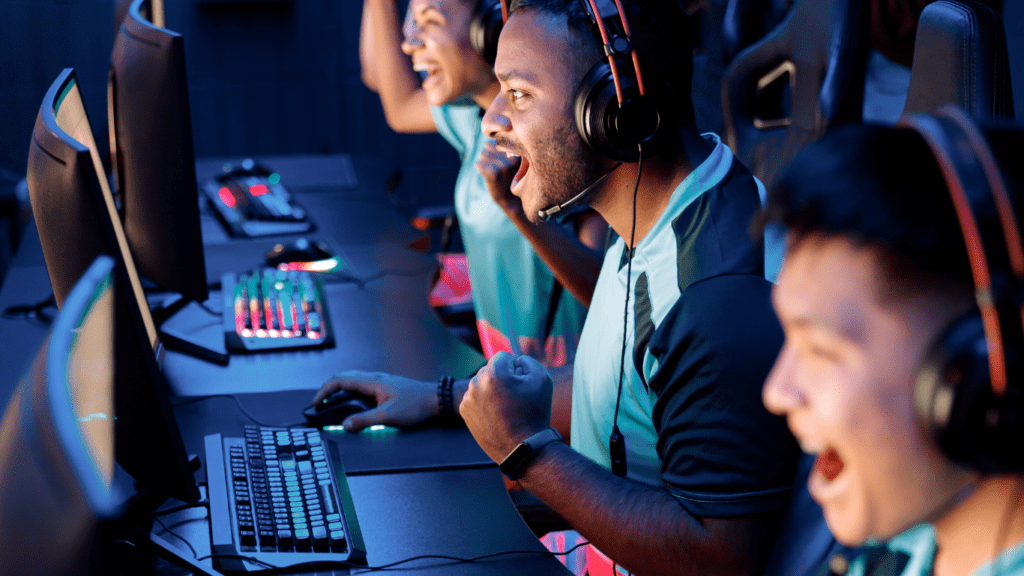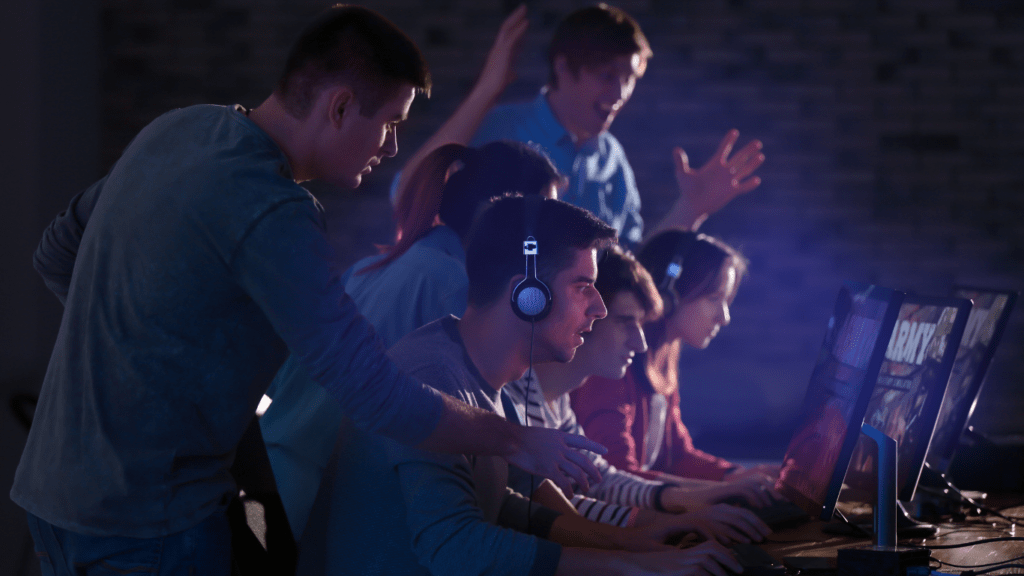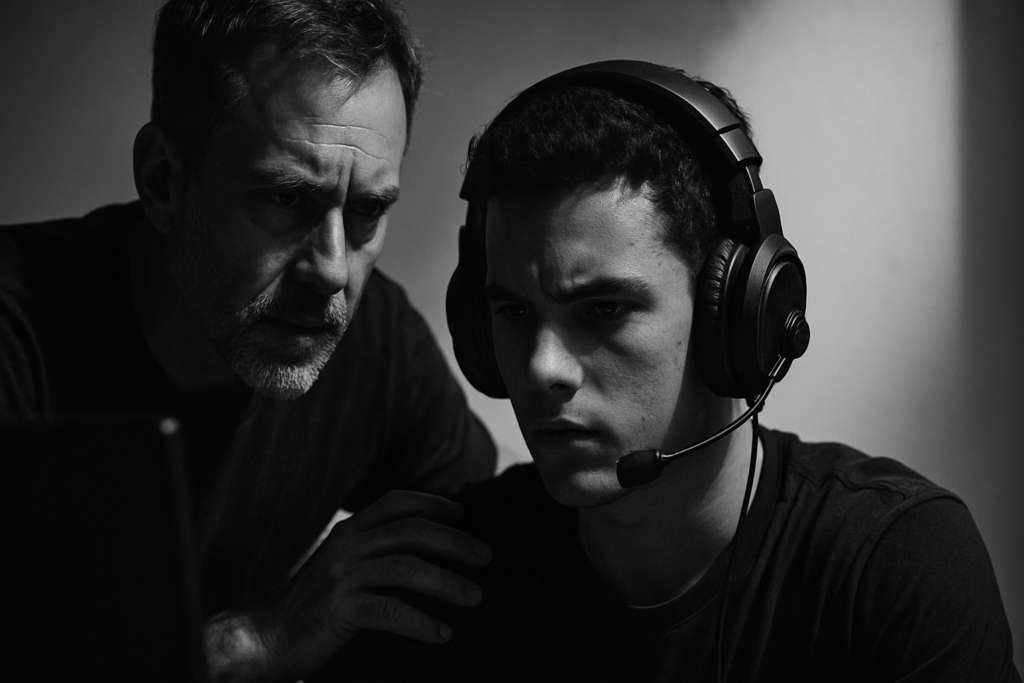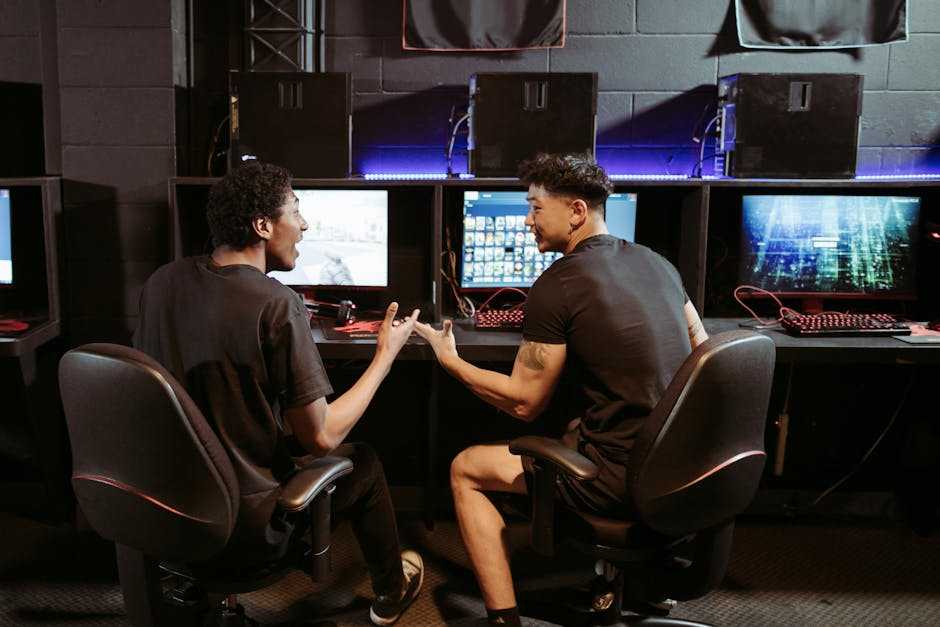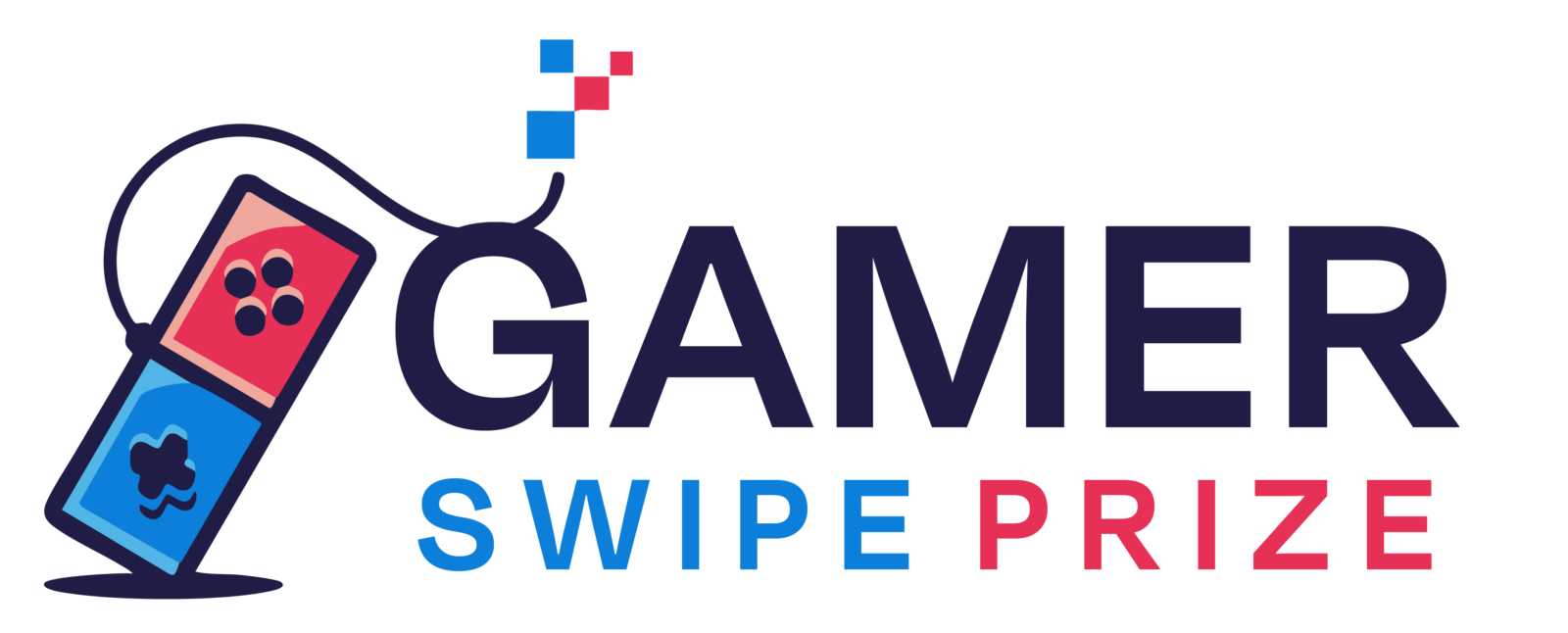Understanding Esports Coaching And Analysis
Coaches and analysts play distinct but interconnected roles that shape the success of esports teams. Their strategic input and performance evaluations are key to competitive dominance.
What Do Esports Coaches Do?
Esports coaches develop strategies, enhance player performance, and maintain team cohesion. They focus on creating tailored training regimens based on individual players’ strengths and weaknesses, adapting these according to specific games and opponents. Tactical decisions, such as map picks in “CS:GO” or draft selections in “League of Legends,” often fall under the coach’s responsibility.
Managing player mental health is another critical task. Coaches address issues like burnout and stress by fostering a positive and focused team environment. During matches, they analyze real-time scenarios to adjust strategies, ensuring their team performs optimally under pressure.
The Role Of Analysts In Competitive Gaming
- Analysts break down gameplay data to identify patterns and insights that support strategic planning.
- Using tools like performance metrics, heatmaps, and replay analysis, they evaluate both their team and opponents to exploit weaknesses and optimize strategies.
- Analysts also provide data-backed feedback to players, enabling focused improvements.
- Pre-match preparation heavily relies on analysts’ insights, ranging from predicting an opponent’s playstyle to identifying trends in their recent matches.
- Their work ensures a team remains adaptable and informed in high-stakes environments.
Importance Of Coaches And Analysts In Esports Teams
Coaches and analysts play pivotal roles in ensuring esports teams operate at peak performance. Their combined expertise empowers teams to achieve consistent success in highly competitive environments.
Creating Effective Strategies And Tactics
Coaches drive strategic planning by developing game-specific tactics tailored to opponents’ strengths and weaknesses. During training, they analyze key scenarios to create adaptable strategies for different match situations. Analysts complement this by gathering and interpreting gameplay data to refine these plans. For instance, analysts identify recurring patterns in an opponent’s playstyle, enabling coaches to craft counter-strategies that give their team a competitive edge.
Improving Player Performance And Mental Resilience
Player skill development relies on structured guidance from coaches. They design practice schedules, focusing on individual and team performance goals. Coaches also prioritize mental resilience by:
- addressing stress
- focus
- communication under high-pressure conditions
Analysts assist by tracking player progress and generating feedback on execution, ensuring training efforts align with measurable improvements. For example, detailed stats on reaction time or accuracy enable targeted skill enhancement.
Data-Driven Decision Making In Esports
Decision-making in esports benefits from the data-centric insights provided by analysts. They utilize tools to track metrics like kill-to-death ratios, map control efficiency, and response timing. Coaches use this information to make tactical adjustments during matches, such as reallocating player roles or adjusting team compositions. Teams that embrace data-backed decisions often adapt faster to shifting dynamics, enhancing their performance consistency in tournaments.
Challenges Faced By Esports Coaches And Analysts

Esports coaches and analysts encounter unique difficulties as they work to enhance team success in an increasingly competitive industry. These challenges often stem from the dynamic nature of esports and the high demands on their expertise.
Handling Team Dynamics
Managing team dynamics requires keen emotional intelligence and conflict resolution skills. Players often come from diverse cultural and professional backgrounds, which can lead to miscommunication or clashing personalities. I focus on fostering unity while addressing individual needs through clear communication and collaborative problem-solving. Ensuring players remain committed to collective goals adds another layer of complexity in high-pressure environments.
Keeping Up With Game Updates And Meta Shifts
Tracking frequent game updates and adjusting to meta shifts demands constant adaptation. Changes in game mechanics, character balances, or items can alter optimal strategies overnight. I spend considerable time analyzing patch notes and testing new tactics to keep the team at the forefront of competitive play. Falling behind in understanding these changes puts teams at a significant disadvantage against better-prepared opponents.
Balancing Performance Pressure And Innovation
Navigating the tension between delivering consistent results and embracing creative strategies is a continual challenge. While predictable performance builds reliability, stagnation risks falling behind innovative rivals. I aim to balance tried-and-true tactics with experimentation, ensuring calculated risks yield benefits without compromising team stability. This approach becomes even more challenging amid rising expectations from fans, sponsors, and team organizations.
Notable Success Stories And Their Impacts
Esports history is filled with examples where coaches and analysts have played pivotal roles in achieving remarkable success. Their expertise often transforms teams into champions and delivers long-lasting impacts on the competitive scene.
Iconic Coaching Moments In Esports
In 2018, kkOma, head coach of SK Telecom T1, demonstrated exceptional leadership during the League of Legends World Championship. By rotating players strategically and maintaining morale after tough losses, he showcased the importance of adaptability and mental strength in high-stakes tournaments.
Across the Counter-Strike: Global Offensive (CS:GO) scene, Zonic, coaching Astralis, led the team to four Major victories from 2016 to 2019. His focus on structured, team-based strategies and innovation revolutionized how modern CS:GO teams approach gameplay.
In Dota 2, OG’s head coach, Sockshka, aided their back-to-back wins at The International in 2018 and 2019. He played a crucial role in empowering players to maintain synergy while adapting to rapidly changing metas.
How Analysts Have Influenced Tournament Wins
In 2017, Team Liquid’s analyst team impressed during The International 7 in Dota 2. By dissecting gameplay of competitors and highlighting draft opportunities, analysts enabled Liquid to execute a perfect lower-bracket run and claim the Aegis of Champions.
The role of analysts was equally impactful in Rainbow Six Siege’s Six Invitational 2020, where Natus Vincere analysts identified opponent weaknesses and developed counter-strategies. This data-driven preparation became instrumental in their tournament victories.
CompLexity Gaming in the Call of Duty League benefited when analysts used heatmaps to track enemy movement patterns, resulting in a more predictive and efficient playstyle. This strategic insight allowed them to advance in international tournaments against stronger teams.

